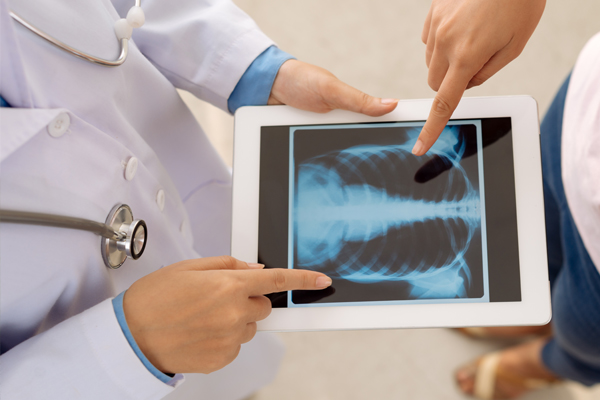
Walking pneumonia, (also referred to as atypical pneumonia) results from an infection in the lungs with signs and symptoms that often resemble other respiratory infections, quite similar to a cold. It is fairly common throughout the United States and is caused by a bacterium called Mycoplasma pneumonia. There are different kinds of pneumonia representing varying degrees of severity, but walking pneumonia falls into the least serious kind. Many people may think they just have a viral respiratory infection and don’t realize they have it.
Who Gets it?
- Anyone can get it, but tends to be more common in children and adolescents, military recruits, and adults younger than age 40.
- People living in crowded places, such as dormitories, military barracks and nursing homes.
- It can happen any time of year but late summer and fall is more common.
Is it Contagious?
Yes, similar to any respiratory infection, through nasal and respiratory secretions. Routine hygiene measures should be used to limit spreading this disease, including covering mouth and nose when coughing or sneezing, diligent hand washing, avoiding close contact with other individuals, (especially hands and face).
Symptoms
- Chest pain when breathing deep
- Cough that may come in violent spasms, (> than 3 weeks and progressively worsening)
- Mild flu-like symptoms such as fever and chills
- Sore throat, headache and tiredness
- Lingering weakness that may last longer after other symptoms go away
Diagnosis
- Careful history and physical exam by a qualified medical provider.
- Your doctor may order a chest x-ray, but there are no classic identifying features.
- There are no specific blood tests which identify walking pneumonia, therefore, this is a clinical diagnosis based upon suspicion with identifying characteristics.
Treatment & Prevention
When your doctor suspects a greater likelihood of walking pneumonia, specific and commonly available antibiotics may be prescribed. Patients often recover with no specific therapy. Other measures include adequate rest, healthy nutrition and over the counter and/or prescription medications to suppress uncomfortable symptoms. There are, unfortunately, no defined prevention measures or immunizations which prevent walking pneumonia. Remember not to smoke and to seek medical attention for a severe cough lasting more than a few weeks.
If you're experiencing lingering symptoms, be sure to see your primary care physician. You can also come to Holland Hospital Urgent Care for evaluation and treatment. Click here for more information.
Dr. Brian J. Coté